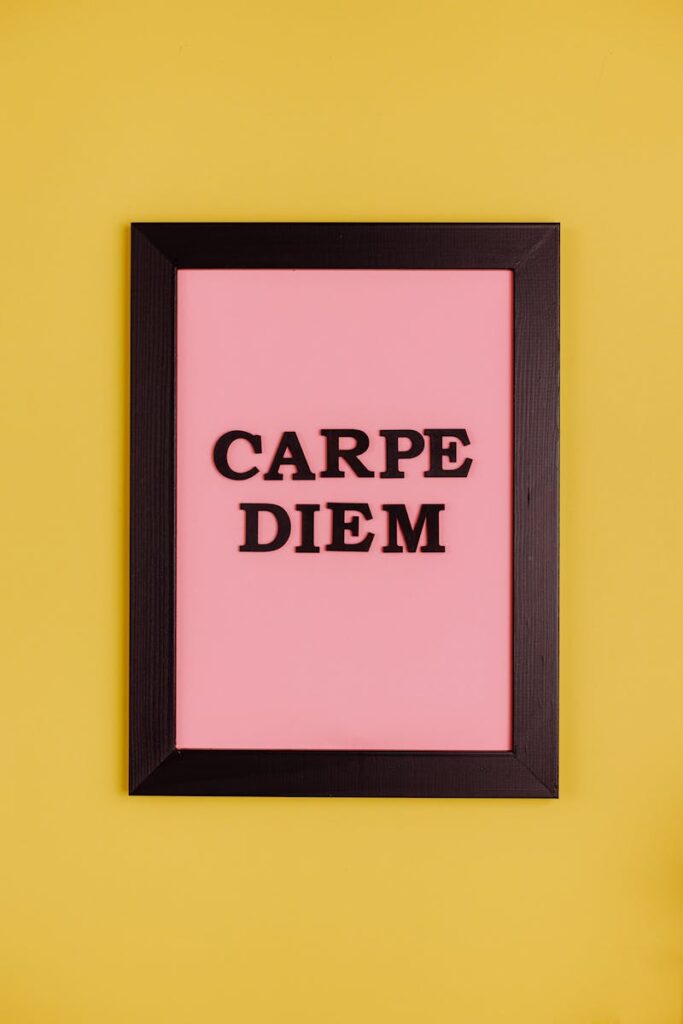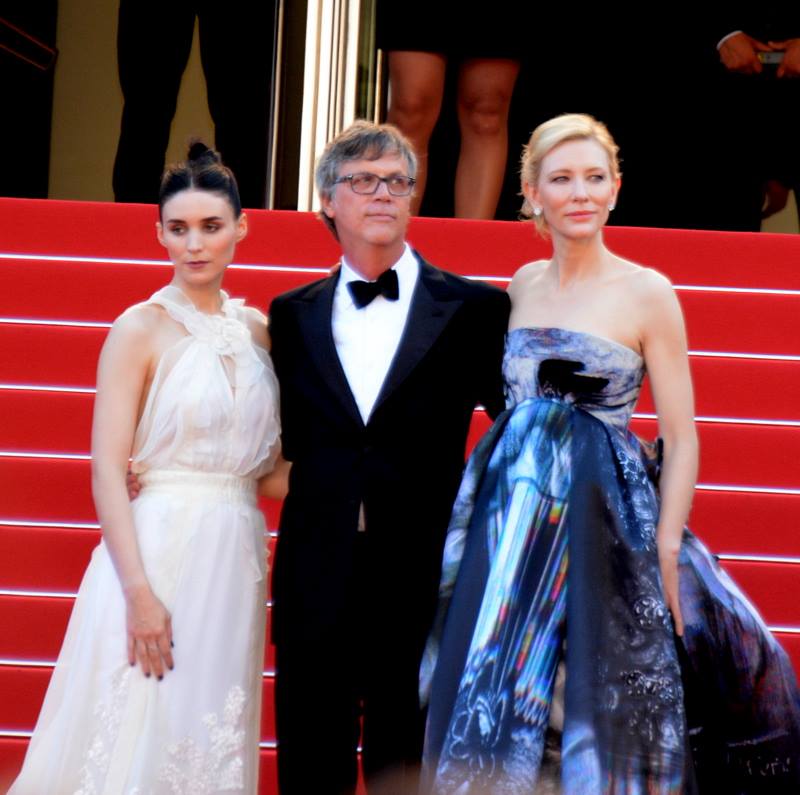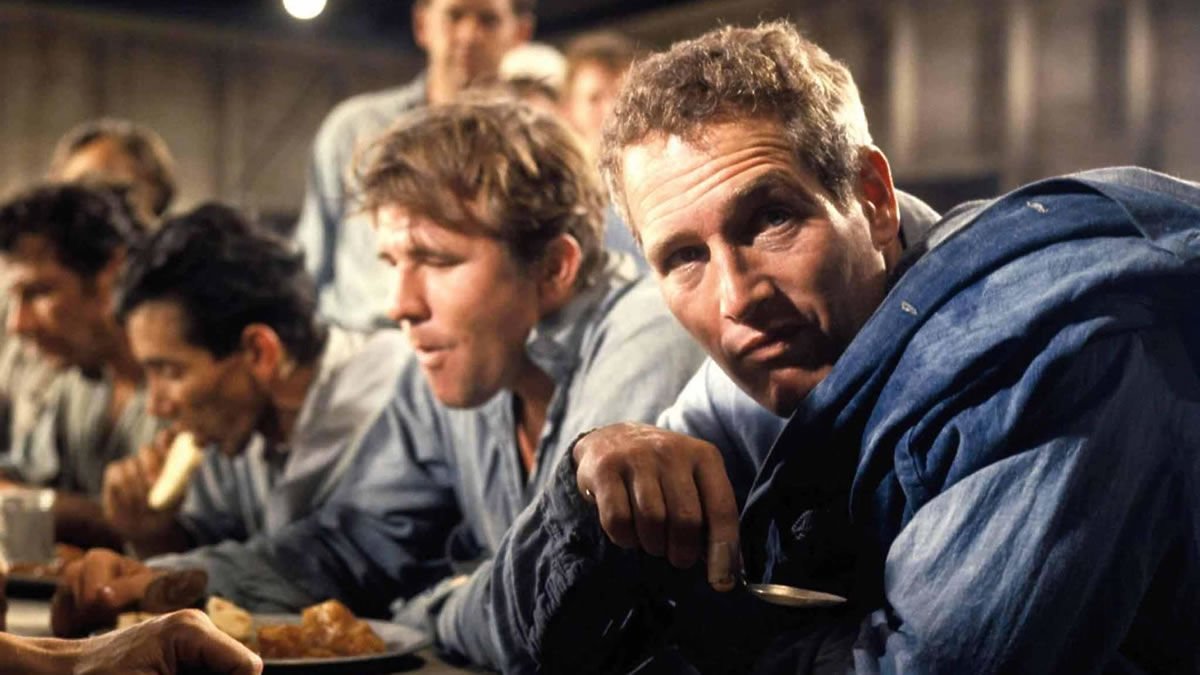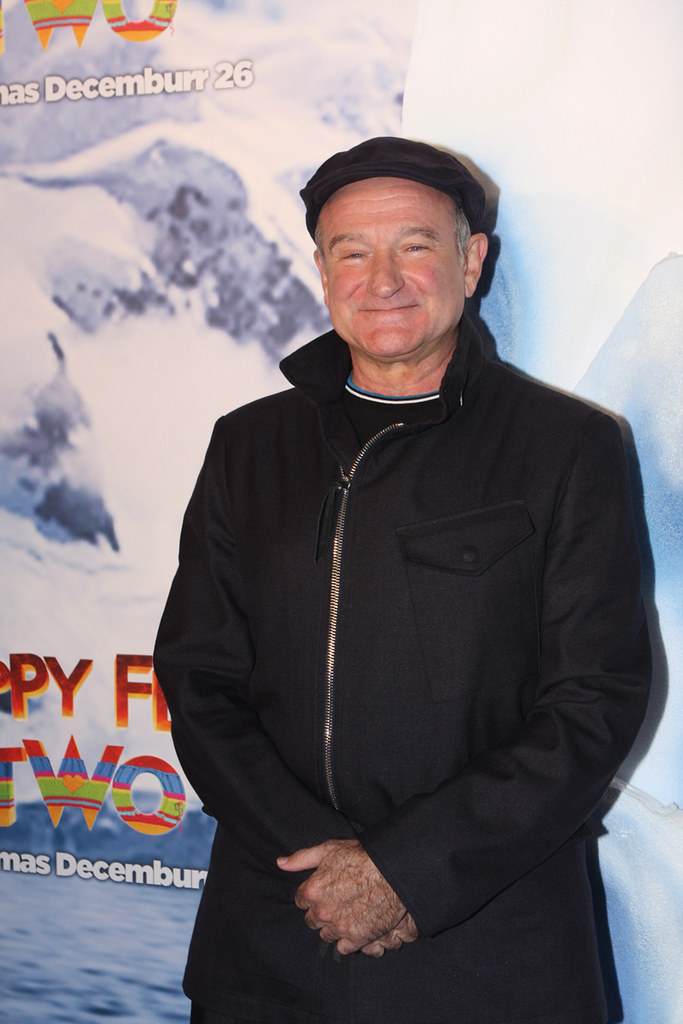
Robin Williams, an inimitable force in the realms of comedy and drama, left an indelible mark on cinema and the cultural landscape. His unparalleled ability to effortlessly switch between uproarious humor and profound emotional depth cemented his status as one of the most versatile actors of his generation. From the zany antics of an alien visitor to the nuanced gravitas of an inspirational teacher, Williams embodied characters that resonated deeply with audiences worldwide, transcending mere performance to become cherished cultural touchstones.
His genius was not merely confined to his extraordinary talent for improvisation and character creation, but also extended to a deep empathy that infused every role, whether comedic or tragic. He possessed a rare gift for connecting with the human spirit, making his portrayals feel authentic and deeply moving. This profound connection is what truly elevated his craft, allowing him to illuminate complex narratives and psychological dimensions with remarkable insight and precision.
We embark on an extensive journey through the remarkable career of Robin Williams, exploring the pivotal roles and significant contributions that showcased his boundless creativity and the true brilliance that made him a beloved film icon. This exploration will delve into the narrative arcs, anecdotal insights, and cultural impacts of his work, offering a nuanced understanding of the man behind the legendary performances.

1. **Mork in Mork & Mindy: The Extraterrestrial Who Captured Earth’s Heart** Robin Williams’s meteoric rise to fame began with his portrayal of Mork, the quirky alien from the planet Ork, in the iconic television series *Mork & Mindy*. His entry into the role was as unconventional as the character itself; during an audition for *Happy Days*, when asked to take a seat, Williams famously sat on his head, instantly impressing producer Garry Marshall with his unique humor. This spontaneous act was a harbinger of the improvisational genius that would define his performance as Mork.
As Mork, Williams unleashed a torrent of improvisation, delivering dialogue and physical comedy with an exhilarating, rapid-fire intensity. He spoke in a high, nasal voice and made the most of every script, often deviating wildly to create genuinely surprising and hilarious moments. This unbridled creativity was not only embraced but actively encouraged, with the show’s writing structured to accommodate his extreme improvisations in dialogue and behavior, a testament to his undeniable talent.
Mork’s appearance on *Happy Days* proved so immensely popular that it spawned its own spin-off, *Mork & Mindy*, which ran from 1978 to 1982. At its peak, the series commanded a weekly audience of sixty million, catapulting Williams into superstardom. Critic James Poniewozik aptly described Williams as Mork, being “a man and a child, buoyant, rubber-faced, an endless gusher of ideas,” capturing the essence of his appeal.
The character of Mork became a cultural phenomenon, adorning posters, coloring books, and lunchboxes, cementing Williams’s place in popular culture. His face graced the cover of *Time* magazine in March 1979, with a memorable photo capturing his multifaceted persona: the funnyman mugging for the camera and a sweet, thoughtful pose on a small TV he held. This image, later installed in the National Portrait Gallery, symbolized his immediate and profound impact, showcasing the different sides of a performer who was just beginning to reveal his true genius to the world.
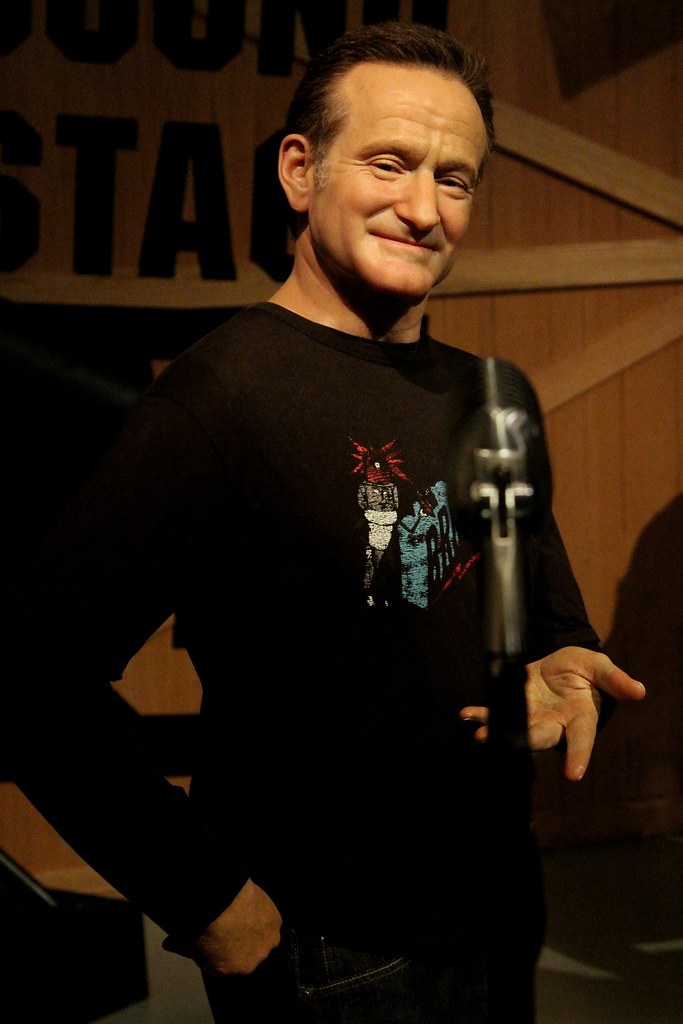
2. **The Stand-Up Comedy Phenomenon: A Hurricane of Hilarity** Long before he became a household name on television and in film, Robin Williams honed his craft in the vibrant, experimental stand-up comedy clubs of the San Francisco Bay Area. Starting in 1976 at the Holy City Zoo, Williams worked his way up from tending bar to dominating the stage. This period, which critic Gerald Nachman described as San Francisco’s “comedy renaissance,” was instrumental in shaping Williams’s lightning-fast wit and boundless improvisational skills.
His performances were legendary for their sheer energy and unpredictable brilliance. David Letterman, who witnessed Williams as a newcomer at The Comedy Store in Hollywood, famously remarked on his arrival being “like a hurricane,” and thought to himself, “Holy crap, there goes my chance in show business.” This sentiment perfectly encapsulated the overwhelming and unique presence Williams commanded, a force of nature that redefined the art of stand-up.
Williams’s stand-up work was a consistent thread throughout his career, serving as both a creative outlet and a sharpener for his improvisational edge. He released several acclaimed HBO comedy specials, including *Off The Wall* (1978), *An Evening with Robin Williams* (1983), and *A Night at the Met* (1986), each showcasing his evolving comedic genius and his capacity to deliver consistently hilarious and thought-provoking material.
The recording of his 1979 live show at the Copacabana in New York City, *Reality… What a Concept*, earned him a Grammy Award for Best Comedy Album, solidifying his status as a master of the form. His stand-up wasn’t just jokes; it was a complex tapestry of voices, characters, and observations, often veering into social commentary with a disarming blend of absurdity and incisiveness, demonstrating the fundamental brilliance that underpinned all his subsequent roles.
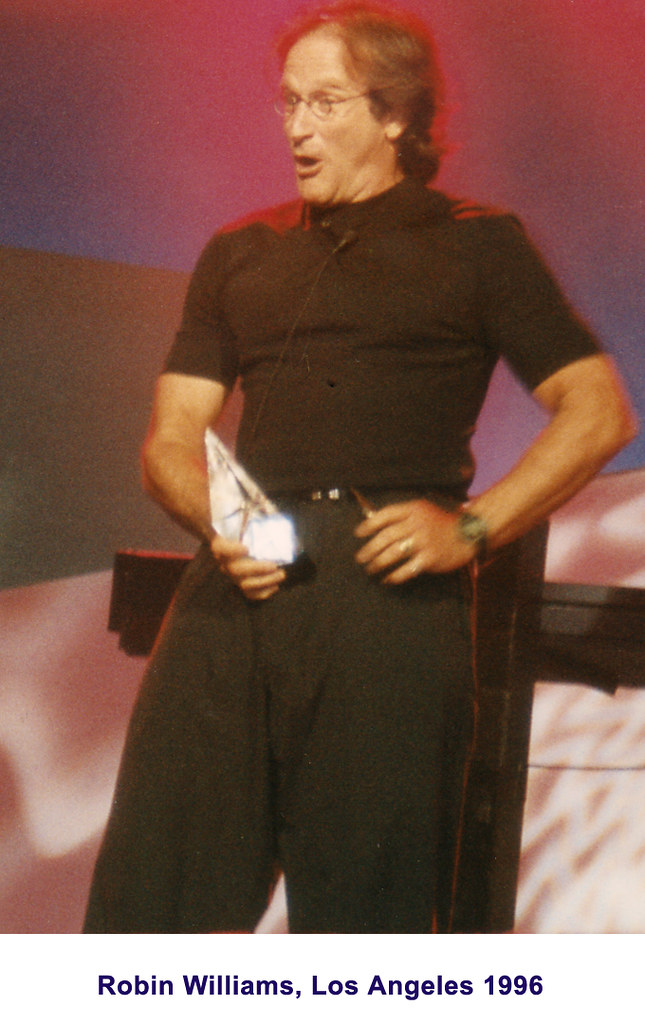
3. **Genie in Aladdin: The Revolutionary Voice That Changed Animation** Perhaps no single role more profoundly showcased Robin Williams’s unique genius and transformative power than his voice performance as the Genie in Disney’s animated classic, *Aladdin*. In 1993, Williams received a Special Achievement Award at the Golden Globes for this “invisible role,” an unprecedented honor that highlighted the extraordinary impact of his vocal artistry behind an animated character. His introduction, escaping from a bottle with the iconic quip, “Ten thousand years will give you such a crick in the neck!”, immediately set the stage for an unforgettable performance.
Co-director Ron Clements recounted the initial recording sessions as nothing short of miraculous. Script pages were designed in “Robin’s improv style,” with storyboards illustrating visual metamorphoses. Williams would begin by recording the script as written, then take off in a “multitude of directions.” A scene initially intended for three minutes would expand to approximately 20 minutes by the 25th and final take, with Williams being “consistently hilarious.” Clements even revealed that the Genie’s lead animator, Eric Goldberg, had to be removed from the recording stage because his “uncontrollable laughter was messing up takes.” Williams’s energy was incredible, leaving him “dripping with sweat, completely drained” after just a four-hour session.
Williams initially accepted the role under specific conditions, primarily that Disney would not extensively commercialize merchandise based on his character, stating, “I’m doing it basically because I want to be part of this animation tradition. I want something for my children. One deal is, I just don’t want to sell anything—as in Burger King, as in toys, as in stuff.” Despite later issues with Disney over this agreement, his performance remained a testament to his artistic integrity and dedication to the craft.
His improvisational genius was on full display, as he recorded approximately 30 hours of tape, impersonating dozens of celebrities including Ed Sullivan, Jack Nicholson, Robert De Niro, and Groucho Marx. This groundbreaking performance not only earned him a Special Golden Globe Award for Vocal Work but also fundamentally changed the perception and making of animated films. It paved the way for A-list actors to lend their voices to animated productions and be prominently featured in marketing, forever altering the landscape of the animation industry and cementing the Genie as one of Disney’s most beloved characters.

4. **Adrian Cronauer in Good Morning, Vietnam: A Daring Blend of Humor and Heart** Robin Williams’s first major breakthrough in film arrived with his starring role as Adrian Cronauer in Barry Levinson’s 1987 war comedy-drama, *Good Morning, Vietnam*. This performance earned him his first nomination for the Academy Award for Best Actor, signaling a pivotal moment in his career where his boundless comedic energy translated seamlessly onto the big screen in a leading capacity. Set in 1965 during the Vietnam War, the film allowed Williams to portray a radio shock jock who entertained troops with his unique brand of comedy and sarcasm, providing a much-needed morale boost amidst the conflict.
The brilliance of his performance stemmed significantly from the creative freedom he was afforded on set. Williams was allowed to play the role largely without a script, improvising most of his lines and delivering an electrifying, uncontainable energy. Producer Mark Johnson recalled, “We just let the cameras roll,” and marvelled at how Williams “managed to create something new for every single take.” This improvisational freedom allowed the character of Cronauer to feel incredibly authentic and vibrant, making him more than just a character but a dynamic presence that captivated the audience.
Williams’s comedic prowess was on full display as he seamlessly transitioned between a rapid-fire succession of voice impressions over the microphone, embodying various public personalities and figures. His renditions of Walter Cronkite, Gomer Pyle, Elvis Presley, Mr. Ed, and Richard Nixon were not merely imitations but became integral to Cronauer’s ability to connect with and entertain the troops. This role perfectly captured Williams’s ability to blend humor with deeper emotional layers, presenting a character who was both a source of laughter and a poignant reflection of the human spirit in challenging times.
The film itself became a critical and commercial success, largely on the strength of Williams’s performance. It highlighted his capacity to anchor a major motion picture, demonstrating that his improvisational brilliance was not limited to stage or television, but could drive a compelling narrative on the cinematic canvas. *Good Morning, Vietnam* established Williams as a formidable leading man, capable of delivering performances that were as entertaining as they were emotionally resonant, paving the way for a diverse and illustrious film career.
5. **John Keating in Dead Poets Society: Inspiring Generations to Seize the Day** In 1989, Robin Williams took on a role that would etch itself into the hearts of audiences as one of his most beloved and inspirational portrayals: John Keating in *Dead Poets Society*. This film marked a significant turn in his career, showcasing his remarkable ability to inhabit more nuanced, dramatic characters while still infusing them with his characteristic warmth and humanity. As an unconventional English teacher at an elite preparatory school, Keating dared to challenge the rigid academic norms, inspiring his students through the power of poetry and critical thought.
Williams’s performance as Keating was celebrated for its profound emotional depth and the powerful message of seizing the day, or “Carpe Diem.” He encouraged his students to think for themselves, to find their own voices, and to live life with passion and individuality. The iconic scene where Keating stands on his desk, urging his students to see the world from a different perspective, became a symbol of his character’s transformative influence and a enduring moment in cinematic history.
This role earned Williams critical acclaim and a second Academy Award nomination for Best Actor, further solidifying his versatility beyond pure comedy. His portrayal of Keating resonated deeply with audiences, particularly young people, inspiring a generation to question authority, pursue their dreams, and embrace the beauty of self-expression. The film’s emotional impact, culminating in the powerful final scene where students stand on their desks in solidarity, became a cultural touchstone.
Williams imbued Keating with a blend of intellectual rigor, playful charm, and profound empathy, making him an unforgettable mentor. His ability to convey both the joy of discovery and the pain of conformity showcased a sophisticated dramatic range that many had only glimpsed previously. *Dead Poets Society* underscored the fact that Williams was not merely a comedian but a profound actor capable of delivering performances that deeply affected and inspired both on-screen characters and viewers alike.
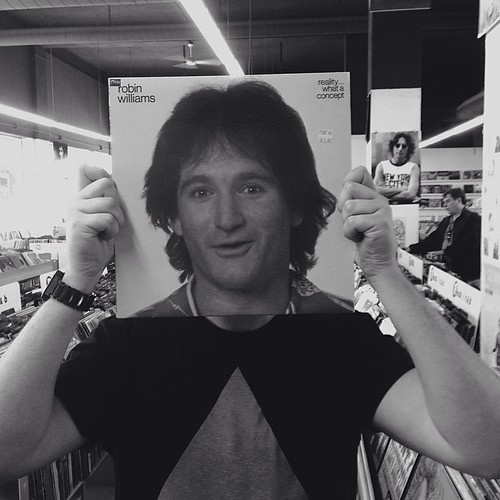
6. **Daniel Hillard/Euphegenia Doubtfire in Mrs. Doubtfire: The Art of Comedic Transformation** Robin Williams’s comedic genius and astonishing versatility were perhaps never more gloriously on display than in his dual role as Daniel Hillard and Euphegenia Doubtfire in the 1993 hit film, *Mrs. Doubtfire*. This iconic performance demonstrated not only his gift for physical comedy but also his profound ability to blend uproarious humor with heartfelt emotional depth, tackling complex themes of family and love with a unique blend of farce and poignancy.
The story, following a divorced father who disguises himself as a female housekeeper to spend time with his children, provided Williams with a perfect canvas for his transformative talents. His embodiment of Mrs. Doubtfire was meticulous and utterly convincing, from the elaborate prosthetics and makeup to the distinct voice and mannerisms he crafted for the character. This was not merely a costume; it was a complete immersion into a new persona, revealing Williams’s dedication to character work.
Beyond the external transformation, Williams infused Mrs. Doubtfire with a genuine warmth and maternal affection, making the character endearing despite the inherently deceptive premise. He masterfully navigated the tightrope between hilarious physical gags, such as the famous kitchen fire scene, and the underlying emotional turmoil of a father desperately trying to remain a part of his children’s lives. The film resonated powerfully because beneath the laughter, there was a deeply relatable story about the enduring bonds of family.
*Mrs. Doubtfire* became a massive commercial success, further cementing Williams’s status as a leading man who could draw audiences with both his comedic chops and his capacity for emotional storytelling. The role showcased his unparalleled ability to switch between personas, embodying the chaotic, loving Daniel and the stern, caring Mrs. Doubtfire with seamless brilliance. It remains one of his most memorable performances, a testament to his unique capacity to elicit both laughter and tears, proving that true comedic genius often lies in the ability to touch the heart.
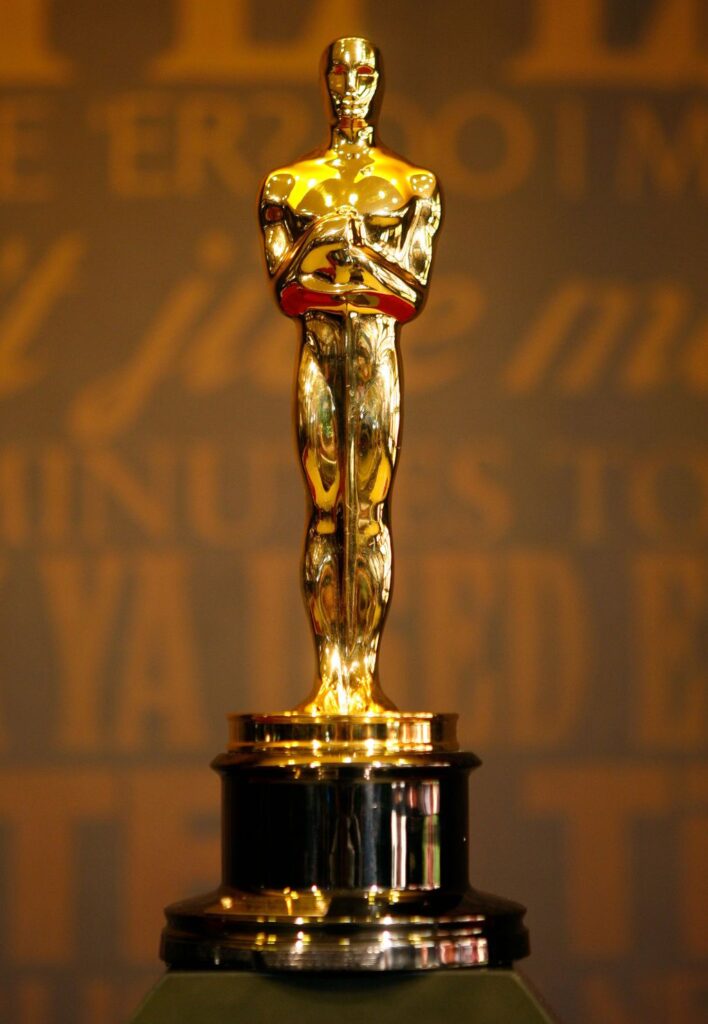
7. **Sean Maguire in Good Will Hunting: The Oscar-Winning Embodiment of Empathy**Williams reached a career pinnacle with his Oscar-winning performance as Sean Maguire in Gus Van Sant’s 1997 film, *Good Will Hunting*. He portrayed a compassionate therapist guiding a troubled young genius, Will Hunting, through his emotional turmoil and intellectual brilliance. His ability to convey complex emotions with raw authenticity made this one of the most heartfelt performances of his career, resonating deeply with audiences and even some real therapists.
His portrayal was particularly lauded for its striking blend of profound wisdom, genuine empathy, and underlying vulnerability. Maguire’s character offered not just professional guidance but a deeply personal connection that illuminated the path for the protagonist. Williams made the character feel incredibly real and impactful, embodying a mentor who inspired through understanding rather than instruction, striking a deep chord with viewers globally and showing his profound gift for character work.
The wisdom, empathy, and vulnerability that Williams brought to Sean Maguire were truly remarkable. He navigated the character’s challenging dynamic with the brilliant but troubled Will, delivering monologues that were both poignant and profoundly insightful. The scenes between Williams and Matt Damon, particularly their therapy sessions, are celebrated as some of the most powerful and memorable in modern cinema, showcasing a masterclass in emotional acting and character development.
This role powerfully demonstrated Williams’s capacity for nuanced dramatic acting, subtly infusing the character with a quiet strength, distinct from his more boisterous comedic outings. Yet, it still carried the characteristic warmth and humanity that defined much of his beloved work, proving his ability to deliver a performance that was both understated and incredibly impactful. The Academy Award for Best Supporting Actor solidified his status as a dramatic actor of immense caliber, leaving an indelible mark on cinematic history.

8. **Parry in The Fisher King: A Journey into Profound Vulnerability**Another pivotal dramatic performance earning Robin Williams an Academy Award nomination for Best Actor was his portrayal of Parry in Terry Gilliam’s 1991 film, *The Fisher King*. As a troubled homeless man haunted by tragic delusions, Williams delved into profound depths of human vulnerability, mental anguish, and the redemptive power of connection. This complex role showcased a transformative range that continually surprised critics and audiences.
Director Terry Gilliam, who helmed Williams in two films including *The Adventures of Baron Munchausen*, lauded Williams’s unique abilities. Gilliam stated in 1992 that Williams could “go from manic to mad to tender and vulnerable.” He emphasized, “Williams had the most unique mind on the planet. There’s nobody like him out there.” This quote perfectly encapsulates the extraordinary versatility Williams brought to such a challenging character.
Williams’s portrayal was deeply steeped in pathos, a powerful element found in many of his most acclaimed dramatic works. He brought raw, unvarnished honesty to Parry’s fantastical delusions and underlying suffering, making them deeply empathetic rather than merely tragic or absurd. It was a performance that demanded both frenetic, almost comedic, energy at times, and profound, quiet despair at others, a true testament to his unparalleled command over his emotional instrument.
Beyond the mental health struggles, Parry’s character embodied a quest for redemption and a belief in mythical narratives. This allowed Williams to explore themes of madness, love, and healing with remarkable sensitivity, making Parry not just a character to pity, but one whose journey resonated on a deeply human level. The role earned him an Academy Award nomination for Best Actor, further solidifying his prowess in serious dramatic fare.

9. **Dr. Malcolm Sayer in Awakenings: Illuminating the Human Spirit**In 1990, Robin Williams took on the role of Dr. Malcolm Sayer in the critically acclaimed drama *Awakenings*, a character based on the real-life neurologist Oliver Sacks. This performance showcased a more restrained, intellectually rigorous, and profoundly compassionate side of Williams’s dramatic capabilities. Moving away from his usual explosive energy, he embodied a thoughtful and dedicated physician, bringing gravitas to a poignant narrative about patients reawakening from catatonia.
The film itself was a deeply moving exploration of memory, consciousness, and the resilience of the human spirit. Williams’s performance was central to its emotional core, portraying a doctor driven by curiosity and empathy to find a cure for a mysterious sleeping sickness. His meticulous approach to the role captured the quiet determination of a scientist and the profound connection he formed with his patients, particularly Leonard Lowe.
Oliver Sacks, the very doctor upon whom the character was based, later offered remarkable praise for Williams’s portrayal. Sacks openly remarked on Williams’s extraordinary mind, stating that the way the actor’s mind worked was “a ‘form of genius’.” This high commendation from the real-life subject underscored the authentic and insightful nature of Williams’s performance, demonstrating his ability to truly understand and embody complex intellectual and emotional landscapes with grace.
Williams’s performance in *Awakenings* was a masterclass in subtlety and emotional restraint. He conveyed the quiet dedication and profound empathy of a doctor relentlessly pursuing solutions for his patients, making their triumphs and regressions deeply felt by the audience. This role firmly established his place among serious dramatic actors, proving he could be profoundly moving without resorting to overt comedic theatrics.

10. **Hunter “Patch” Adams in Patch Adams: The Healing Power of Laughter and Compassion**In the 1998 film *Patch Adams*, Robin Williams delivered a performance that perfectly encapsulated his unique ability to blend uproarious humor with profound compassion and a deeply humanitarian spirit. He portrayed Hunter “Patch” Adams, a real-life medical student who boldly challenged conventional healthcare practices by advocating for the belief in the healing power of laughter, joy, and genuine human connection alongside traditional medicine. This inspiring role felt tailor-made for Williams’s distinctive talents and his inherent warmth.
The film provided Williams with a powerful platform to preach the importance of compassion in healthcare settings, showing how his comedic genius could serve a deeper, humanitarian purpose. His portrayal vividly highlighted “laughter’s healing power in tough situations,” a message that resonated deeply with audiences and mirrored much of Williams’s own philosophy towards life, performance, and philanthropy. He made the character’s unconventional and often joyful methods feel not only effective but absolutely essential for patient well-being.
Williams imbued Patch Adams with an irresistible blend of mischievous charm, boundless energy, and heartfelt earnestness. He navigated the complexities of a character who faced skepticism and resistance from the medical establishment, yet remained steadfast in his belief that empathy, humor, and personal connection were vital components of holistic healing. This showcased his unique ability to inspire both on-screen characters and viewers alike, transforming a potentially saccharine role into one of genuine emotional impact.
Beyond the surface-level comedy, Williams brought a touching vulnerability to Patch, revealing the personal struggles and deep empathy that fueled his unconventional approach. He portrayed a man who genuinely cared for every patient, viewing them as individuals with stories and emotions rather than just diagnoses. This profound commitment to human connection was a hallmark of Williams’s own character, making the portrayal all the more authentic and moving, cementing his status as an actor who could deliver emotionally rich performances.

11. **Sy Parrish in One Hour Photo: Unveiling the Darker Side of Humanity**Robin Williams ventured into strikingly darker and more unsettling territory with his compelling role as Sy Parrish in the 2002 psychological thriller *One Hour Photo*. In a dramatic departure from the warm, often boisterous, and usually comedic characters audiences had come to expect, Williams portrayed an emotionally disturbed photo development technician. Sy developed a chilling and possessive obsession with a seemingly perfect family for whom he had developed pictures for a long time. This film unveiled a truly transformative and unexpected side of his dramatic range.
This unsettling performance was a clear demonstration of “a new rank of his versatility by playing darker roles than he had in the previous decades,” marking a significant and strategic expansion of his acting repertoire. Alongside his equally intense role in *Insomnia* released the same year, *One Hour Photo* showcased his unwavering willingness to explore unsettling and complex human psyches, proving he was capable of profound dramatic depth far beyond his more comforting and beloved portrayals.
Williams brought a quiet, unnerving intensity and a deeply unsettling vulnerability to Sy Parrish, making the character’s gradual descent into obsession both disturbing and tragically empathetic. He mastered the subtle nuances of a man teetering precariously on the edge of sanity, conveying a chilling sense of profound isolation, unfulfilled longing, and a desperate need for connection. This performance forced audiences to confront the uncomfortable realities of loneliness, mental instability, and the darker aspects of human nature.
His meticulous attention to Sy’s mundane routines and internal world created a character who was both pathetic and terrifying, highlighting Williams’s ability to completely disappear into a role. The psychological tension built throughout the film was largely due to his nuanced portrayal, which avoided caricature in favor of a deeply felt, if twisted, humanity. The widespread critical acclaim for *One Hour Photo* unequivocally affirmed Williams’s incredible versatility.
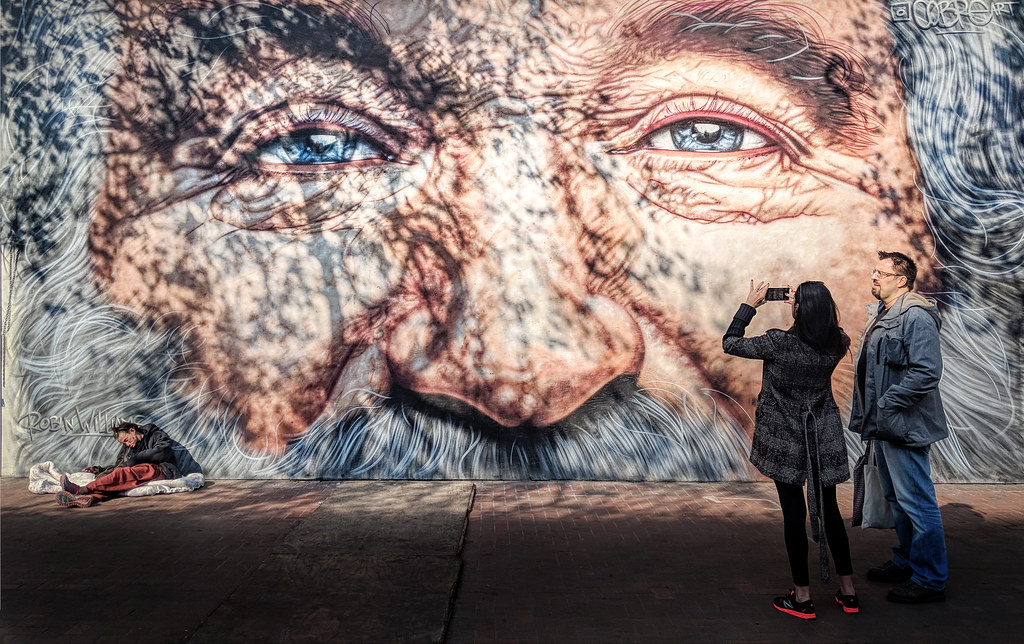
12. **The Enduring Legacy of Philanthropy: Robin Williams’s Humanitarian Heart**Beyond his iconic and diverse performances on screen, Robin Williams left an indelible mark through his profound and enduring humanitarian legacy, an often-overlooked facet of his true genius. His unwavering commitment to giving back and actively helping those less fortunate was a consistent thread throughout his life, reflecting a deep, authentic empathy that permeated his professional and personal endeavors. He utilized his immense platform and personal resources to passionately advocate for numerous charitable causes, truly embodying the spirit of altruism.
A cornerstone of his philanthropic work was the establishment of Comic Relief USA in 1986, which he co-founded with fellow comedic luminaries Whoopi Goldberg and Billy Crystal. This impactful annual HBO television benefit was singularly devoted to aiding the homeless across America. Over its many years, it successfully raised an astounding $80 million, providing crucial support to those in dire need. Bob Zmuda, Comic Relief’s creator, eloquently articulated Williams’s powerful motivation, explaining that Williams “felt blessed because he came from a wealthy home, but wanted to do something to help those less fortunate.”
Williams also became a dedicated and regular fixture on the USO circuit, tirelessly traveling to 13 countries and performing for approximately 90,000 troops stationed abroad, bringing much-needed morale, laughter, and a touch of home to service members in challenging environments. Following his untimely passing, the USO profoundly and publicly thanked Williams “for all he did for the men and women of our armed forces,” acknowledging his selfless dedication and the immeasurable comfort he provided.
Furthermore, he actively supported St. Jude Children’s Research Hospital and, with his second wife Marsha, established the Windfall Foundation to raise money for a wide array of charities. His humanitarian efforts were not merely a footnote to his extraordinary career but an integral and deeply personal expression of his true genius and compassionate heart. Robin Williams demonstrated that true artistry and a fulfilling life extend far beyond entertainment.
This extensive journey through the life and work of Robin Williams has revealed a luminary whose boundless genius illuminated every corner of the human experience. From the frenetic energy of his early comedic breakthroughs to the profound gravitas of his Oscar-winning dramatic roles, and the quiet yet powerful impact of his unwavering philanthropic heart, Williams was a singular artist whose presence continually challenged, entertained, and moved us to our very core. His unparalleled ability to connect with audiences on multiple levels, embracing life’s chaotic joys, poignant sorrows, and complex psychological depths, ensures that his legacy will continue to resonate for generations. He remains a cherished cultural icon, inspiring us all to find our own unique voices, embrace our passions with genuine enthusiasm, and perhaps, even seize the day with open hearts, just as he taught us to do.

